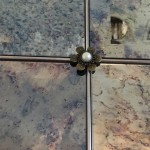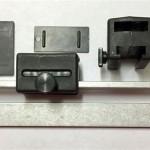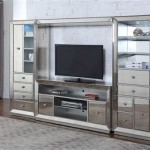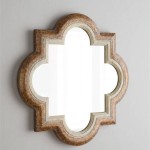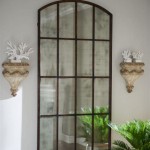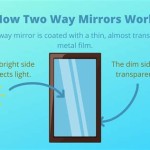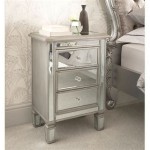Is a Mirror Facing Your Bed Bad Luck? Exploring the Superstition and Practical Considerations
The placement of mirrors within a bedroom, particularly in relation to the bed, has been a topic of discussion for centuries. Many cultures hold beliefs about mirrors and their supposed influence on sleep and well-being. This article explores the superstition surrounding mirrors facing beds, examining its origins and cultural variations alongside practical considerations for bedroom design.
Origins of the Superstition
The belief that a mirror facing the bed is bad luck has roots in various cultural traditions. One prominent theory links the superstition to ancient Chinese folklore, where mirrors were believed to be portals to the spirit world. Having a mirror reflect the sleeping form was thought to invite unwanted spiritual entities into the bedroom, disrupting rest and potentially causing misfortune.
Cultural Variations on the Belief
Different cultures have developed unique interpretations of the mirror-facing-bed taboo. In some European traditions, the belief emphasizes the detrimental effects on the soul. The mirror's reflection was seen as capable of trapping or stealing the soul during sleep, leading to weakness or illness. Mexican folklore associates the practice with infidelity and marital strife. Feng Shui, the Chinese practice of harmonizing individuals with their environment, also discourages placing mirrors facing the bed, citing disruptions to the flow of chi, or life energy.
Psychological Effects of Mirrors at Night
Beyond cultural beliefs, the practical effects of mirrors in the bedroom warrant consideration. Human peripheral vision is highly sensitive to movement, and a mirror's reflection, even in a dimly lit room, can register as movement to the sleeping brain. This can trigger a startle response, leading to disrupted sleep patterns. Anxiety and heightened alertness can also be exacerbated by the perception of a figure in the mirror, particularly in a semi-conscious state between sleep and wakefulness.
Practical Considerations for Bedroom Design
The placement of mirrors within a bedroom can impact more than just perceived luck or psychological well-being. Mirrors reflect light and can amplify the brightness within a room. This can interfere with the production of melatonin, a hormone crucial for regulating sleep cycles. Practical considerations also extend to the size and positioning of the mirror. Large mirrors can create a sense of spaciousness in smaller rooms but can also be visually overwhelming if positioned incorrectly. Careful consideration of the mirror's location can minimize potential disturbances and maximize its decorative benefits.
Feng Shui and Mirror Placement
Feng Shui principles offer specific guidelines regarding mirror placement within the bedroom. Mirrors should not reflect the bed directly as this disrupts the flow of chi and potentially creates restlessness. They should also not face the bedroom door, as this is believed to deflect positive energy away from the room. Feng Shui suggests using mirrors to reflect pleasant views or elements within the room, such as artwork or plants, to enhance positive energy and create a harmonious environment.
Debunking the Myth vs. Personal Comfort
While the notion of mirrors facing beds causing bad luck lacks scientific basis, the power of belief and individual sensitivity should not be discounted. For some individuals, the cultural significance and ingrained anxieties associated with the superstition can create a self-fulfilling prophecy of poor sleep and increased anxiety. Whether the belief stems from cultural conditioning or personal experience, prioritizing individual comfort and creating a sleep-conducive environment is paramount.
Alternatives to Mirror Placement
If a mirror is a necessary element in the bedroom, several strategies can mitigate potential negative effects. Positioning the mirror so it doesn't directly reflect the bed is a primary consideration. Alternately, using curtains or screens to cover the mirror at night provides a simple solution. Choosing smaller mirrors or those with decorative frames can also lessen their visual impact and minimize potential sleep disruptions. Thoughtful placement and alternative design choices can ensure both functionality and a peaceful sleep environment.
The Impact of Light Reflection
Mirrors reflect not only images but also light. A mirror positioned opposite a window can amplify the brightness within the room, particularly during sunrise or if external light sources, like streetlights, are present. This increased light can disrupt sleep by inhibiting melatonin production. Choosing appropriate window coverings and strategically placing the mirror to minimize light reflection are crucial for maintaining a dark and restful sleep environment. The impact of light reflection is a practical concern regardless of superstitious beliefs.

Why Mirror Facing The Bed Is Bad Feng Shui

Why Mirror Facing The Bed Is Bad Feng Shui

Is It Bad To Have A Mirror Facing Your Bed Khepera Wellness
Is Anything Wrong With Having A Mirror Facing You In Your Bedroom Sleep Quora

Feng Shui Expert Warns You Should Never Sleep With A Mirror Opposite Your Bed

Why Having Your Mirror Facing Bed Is Bad Feng Shui

28 Superstitious Taboos Wofs Com

Why Having Your Mirror Facing Bed Is Bad Feng Shui

Why Mirror Facing The Bed Is Bad Feng Shui

Mirror Facing Bed Spiritual Meaning Is It Bad To Have A Your Impeccable Nest

